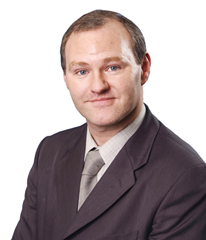Right to roam: Paul Maskey
 Mobile phone roaming charges within Ireland are an “unfair taxation” for customers and should be abolished, according to Paul Maskey. Emma Blee talks to the Sinn Féin MLA.
Mobile phone roaming charges within Ireland are an “unfair taxation” for customers and should be abolished, according to Paul Maskey. Emma Blee talks to the Sinn Féin MLA.
People in Northern Ireland have been charged high roaming costs for using handsets in the South for years.
One national phone company levies these fees on another to route a mobile phone call made across borders; they are then passed on to the consumer through their bill.
At present, it can cost 14 pence a minute to receive a call on a UK mobile while visiting the South, 35 pence a minute to make a call and 10 pence to send a text message.
In a no day named motion (i.e. yet to be debated be the Assembly), Sinn Féin MLA Paul Maskey is calling for the Executive to ask all major phone providers to abolish
roaming charges. He argues that the charges are an “unfair taxation on their customers when making phone calls to or from another part of the island.”
Maskey says he decided to put forward the motion after a large number of constituents, from both the North and South of Ireland, contacted the party when they received mobile phone bills with hefty roaming charges attached.
He explains: “If you are making phone calls from the south of Ireland on a northern contract or pay as you go tariff, there roaming charges apply to your phone when contacting people or businesses in the North.”
It is a particular problem for many people who live along the border corridor, he says, and for people who travel regularly on business.
“People cross both sides of the border for work or for daily chores or holidays and are being penalised by the phone companies,” remarks Maskey.
“Costs are quite high and people can get a shock when they receive their bills. Others have permanently higher bills as the networks may chop and change due to the proximity of different signals and suppliers where they live and work.”
 In 2010, the European Commission imposed a cap on the cost of calls, texts and data downloads and announced that it wants firms to remove the difference between roaming and national tariffs by 2015.
In 2010, the European Commission imposed a cap on the cost of calls, texts and data downloads and announced that it wants firms to remove the difference between roaming and national tariffs by 2015.
The Commissioner for Europe’s digital agenda, Neelie Kroes, has described the price gap between domestic mobile charges and roaming rates as “unjustifiably high”. She suggested that the mobile phone market in Europe is dominated by a few large players like orange, vodafone and O2, which means there is too little competition on prices.
The phone companies responded, by saying that they have been “diligent” in meeting the current rules and are now introducing better offers for customers.
However, the MLA says better offers are not enough. He hopes the companies will “do the honourable thing and do away” with the charges: “We have already seen the EU stepping in and making rulings to lower roaming charges. Even if they are reduced, people are still disproportionately affected, especially those who live across the border corridor.”
Maskey would like to see movement on this issue “long before” the Commission’s target of 2015. “We hope to have the motion debated as soon as possible and if not in this term we will certainly be putting it on agenda at the start of the next.”





